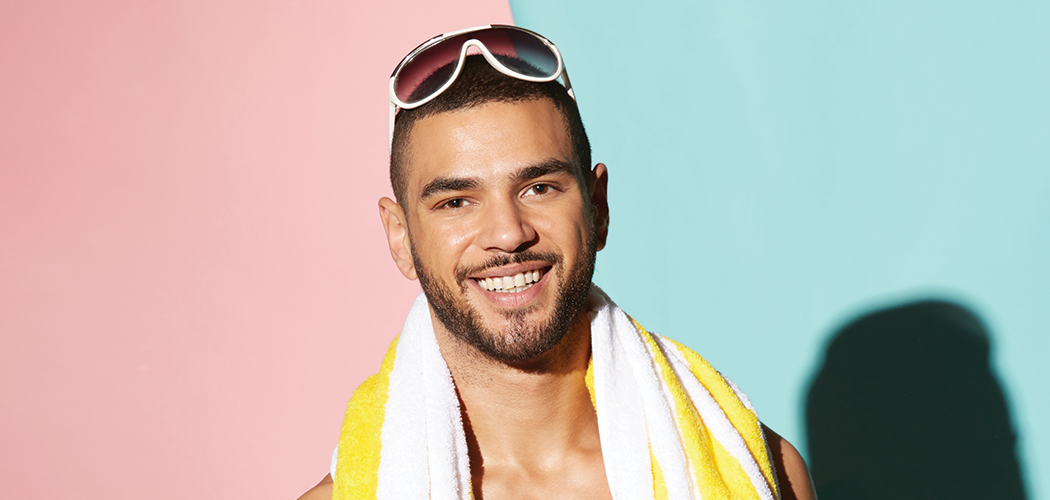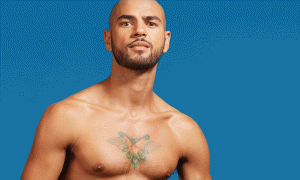Last year saw the first ever drop in new HIV diagnoses among gay and bisexual men since the start of the epidemic, and the biggest overall drop on record. Clearly we have the required tools to prevent more people from becoming HIV positive – but, the big question is, are you using them?
A sexy new campaign from It Starts With Me for this summer is all about how to stop HIV and choosing the best option
(or options) for you:
1 Condoms – the best way to protect yourself against STIs, including HIV
2 HIV Testing – testing for HIV has never been easier, quicker or more convenient
3 PrEP – the HIV prevention pill can be taken daily or ‘event based’, which is as and when you need it
4 Treatment – people living with HIV who are on effective treatment can’t pass on HIV
The vibrant new campaign features real people who are playing their part in stopping HIV, whether that’s using condoms, testing regularly, taking pre-exposure prophylaxis, known as PrEP or, if they’re living with HIV, through treatment which stop the virus being passed on. We spoke to Sadiq, Jack, Phil and Sameer.
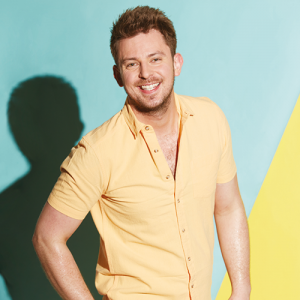
Jack: I test regularly
There’s been loads of progress in testing for HIV. It’s quicker and easier than ever before. You can get tested at a clinic or test yourself at home and get a result within 15 minutes.
‘For the first years of having sex, HIV wasn’t something that was on my radar, even though it should’ve been’ says Jack.
‘I had no gay friends when I was a teenager, and it wasn’t until I moved to London at 20 and had a strong circle of gay friends that I realised gay men are more impacted by HIV.
‘But I didn’t have an STI test until I was 21. I was too embarrassed before that, but there’s obviously nothing to be embarrassed about.
‘Now I test regularly for STIs and, while I mainly test at the clinic, I think it’s great there are more options available like self testing and home sampling.’
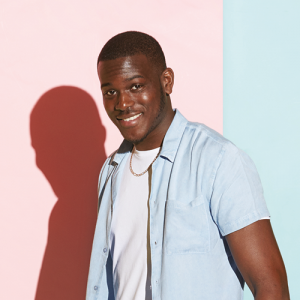
Phil: I’m taking PrEP
Phil Samba, 28, is stopping HIV by using PrEP and discussing his experiences with it. As a black gay man of African origin, he’s from three categories of people that are disproportionately affected by HIV making it especially important for him to take care of his sexual health. He takes PrEP to ensure he’s protected against HIV.
‘PrEP makes my life so much easier. I used to constantly worry after having sex – getting HIV was always in the back of my head,’ says Phil.
‘PrEP relieves me of all anxiety. I can take it once a day alongside my hay fever medicine and I no longer have to stress about transmission whenever I sleep with a guy.
‘I get tested for STIs every three months as part of the PrEP trial and I get tested monthly as an extra precaution.’
‘I would love to see PrEP talked about and discussed among more people who need it most, not just gay men but black Africans and trans women. If we can stop more people from becoming HIV positive using PrEP, why aren’t we using it more?
‘If people get tested, people take PrEP and people living with HIV take treatment, which means they can’t pass on HIV, we should be in the position to end HIV transmission within my lifetime. I want to see that.
‘The backlash against PrEP is similar to the pill when it first came out, in that everyone shunned it and said ‘these women are just going to sleep around’ and that’s how it’s talked about among many gay men at the moment.
‘But that narrative is unhelpful. If anyone thinks they could benefit, they should absolutely look into it.’
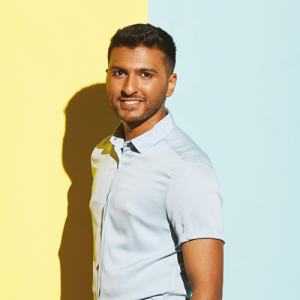
Sameer: I’m using condoms
Free condoms from his local sexual health clinic is how Sameer protects himself from HIV, alongside regular testing if he’s been with a new partner.
‘I always use condoms. If someone asked for no condoms, I would refuse. Condom use and regular testing is really important, for HIV and other STIs,’ says Sameer.
‘Growing up in an Indian family, they don’t like to talk about sex. But, because I’ve been open about it, I’ve seen a change in the way my family talks about sex. It just takes one person to help change things.
‘So I always say to my family “I was off getting a sexual health check-up” to normalise it. I think everyone should be doing it.
‘Some Asian people won’t go and get tested because they don’t want people to know they’re sexually active. Having sex before marriage is a huge thing and they shy away from sexual testing.
‘But no-one should be afraid to get tested.
It’s important to get tested and know your status.’
While Sameer is happy with whatever’s free, using a different condom might improve your experience and many people use the wrong
sized condom.
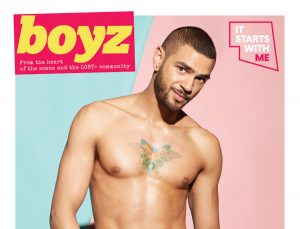
Sadiq: I’m on treatment
Sadiq was diagnosed with HIV four and a half years ago. He’s playing his part in stopping HIV by being on effective treatment, which means he can’t pass the virus on.
“I find the information that I can’t pass it on is always met with surprise,” says Sadiq. “It’s often met with joy and acceptance, but it’s never really met with ‘oh, I knew that’.
“Knowing I can’t pass on HIV opens up a world where I’m ok to be HIV positive and still have sexual relationships, both casual and intimate ones – without HIV being a barrier.”
HIV treatment works by reducing the amount of virus in the blood to undetectable levels, which means – as well as protecting the body from the virus – that HIV can’t be passed on.
“I think positive visibility is one of the biggest things that’s changing the dynamic of stigma at the moment. Regardless of any medical changes that we’re going through, visibility of
HIV positive people, whether it be on
social media or wherever, is making
a difference.
“I wasn’t very aware of HIV. I had dated one HIV positive person when I was in my teens, so I didn’t have a battle to deal with in the sense of acceptance, because I’d already been through that with someone else. But, In terms of what it meant on a day-to-day basis, I wasn’t knowledgeable at all. And neither were the people around me – but now they
bloody are!
‘I went completely off the rails for about a month. I’d been out a lot and I thought I was really sick – I didn’t realise I was seroconverting and that I’d contracted HIV.
‘Luckily, I had some good peers, which is why I think visibility is so important. At first all of my knowledge was gained from doctors and was very clinical. That’s why being able to relate to peers, who you see actively engaged in their own lives, is what made me able to accept my diagnosis.
‘I guess that’s why I do the same. I chucked my story out there and then it all kind of bounced back.
“I haven’t experienced much stigma. I can’t really be targeted by it if I’m not showing shame in it myself. I’ve had a couple of blocks on Grindr but I can cope with that.’
I’M STOPPING HIV
If you have any questions about HIV, PrEP, condoms, testing, treatment or anything else, contact THT Direct for free and in confidence on 0808 802 1221.
It Starts With Me is run by Terrence Higgins Trust on behalf of Public Health England.
For more information about HIV prevention visit startswithme.org.uk



